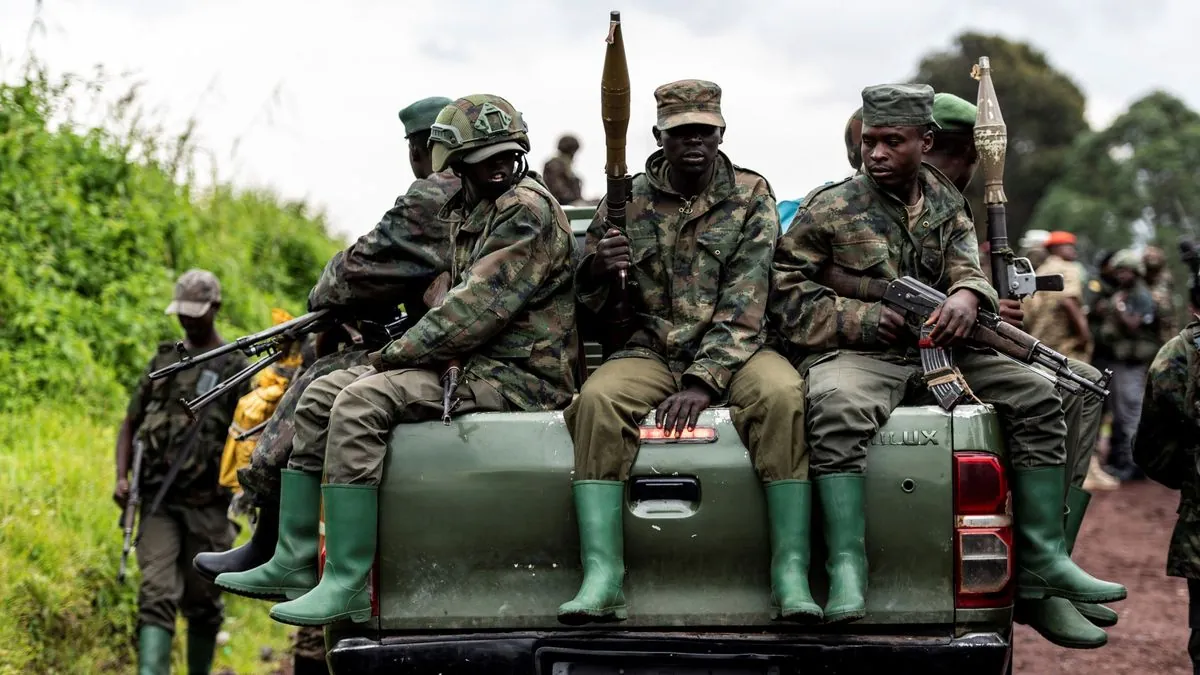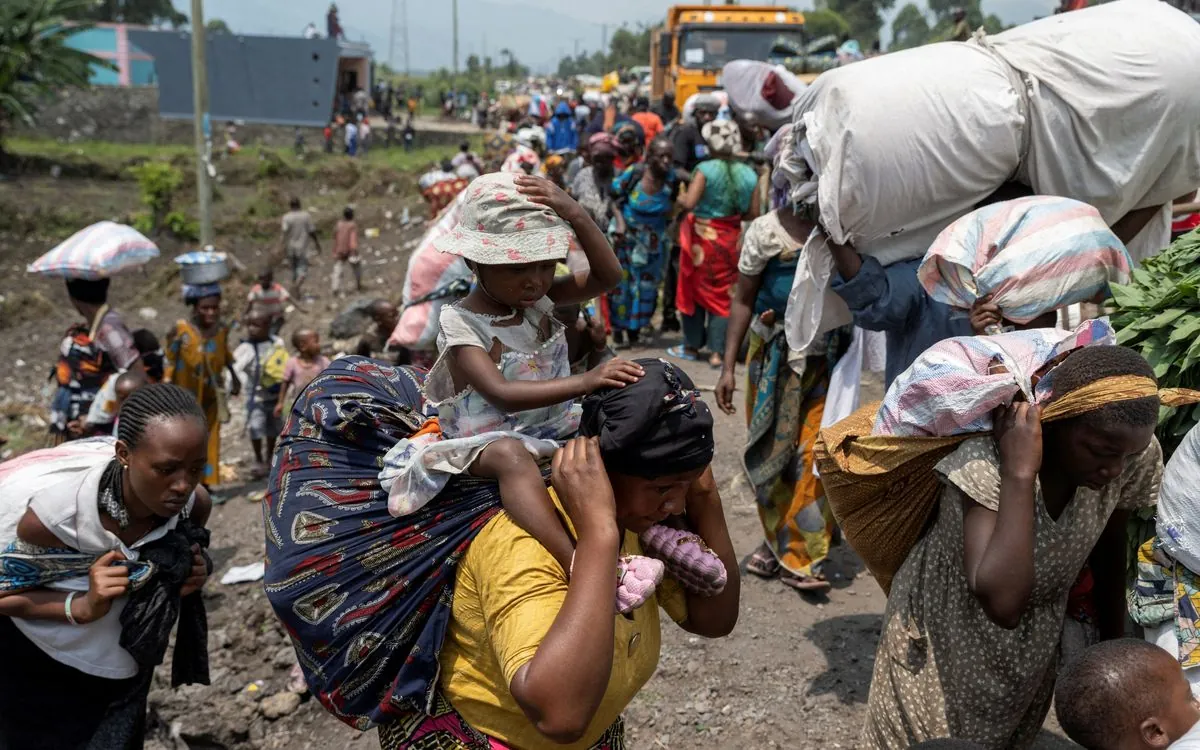Rwanda Claims Congo Rejects Peace Deal in Ongoing M23 Conflict
Rwandan minister alleges Congo's refusal to sign agreement addressing M23 rebel issue. Conflict in eastern DRC continues, displacing over 1.7 million people amid accusations of cross-border support.

In a recent development, Olivier Nduhungirehe, Rwanda's Foreign Minister, has alleged that his Congolese counterpart declined to sign a previously agreed-upon deal aimed at resolving the M23 rebel conflict in eastern Democratic Republic of Congo (DRC). This ongoing insurgency, which began in 2022, has resulted in the displacement of over 1.7 million individuals, exacerbating the region's long-standing humanitarian crisis.
The M23 rebellion, which initially emerged in 2012 and resurfaced in 2022, has been a source of tension between Rwanda and the DRC. The United Nations and other entities have accused Rwanda of supporting the Tutsi-led M23 group with troops and weaponry, allegations that Rwanda consistently denies. Instead, Rwanda asserts that it has taken defensive measures and accuses the DRC of collaborating with the Democratic Forces for the Liberation of Rwanda (FDLR), a Hutu rebel group known for attacking Tutsis in both nations.
In late August 2024, negotiations were held to address the conflict. According to Nduhungirehe, delegates, including the DRC's head of military intelligence, had agreed upon and signed a plan for neutralizing the FDLR and lifting Rwanda's defense measures. This agreement was scheduled to be signed by ministers on September 14, 2024.

Nduhungirehe stated, "We were prepared to sign, but the Congolese minister refused. She initially commented on the report and later, after consultation, expressed opposition to adopting it." The plan reportedly outlined actions against the FDLR to be implemented first, followed by Rwanda easing its defense measures. The Congolese minister allegedly objected to these actions not occurring simultaneously.
The conflict in eastern DRC is part of a complex web of regional tensions that have persisted for over two decades. The area, particularly the Kivu provinces, has been severely affected by the ongoing violence. The United Nations maintains a peacekeeping mission in the DRC, known as MONUSCO, in an effort to stabilize the region.
The DRC, the second-largest country in Africa, gained independence from Belgium in 1960 and has since faced numerous challenges. Its eastern regions are rich in natural resources, including valuable minerals like coltan and gold, which have often been a factor in the ongoing conflicts.
Rwanda, under the leadership of Paul Kagame since 2000, has experienced significant economic growth since the 1994 genocide. However, the country's involvement in the DRC conflict has been a point of international concern.
Felix Tshisekedi, who became President of the DRC in 2019, and Kagame both attended a recent summit of French-speaking countries in France. While French President Emmanuel Macron had proposed a three-way meeting, the two leaders ultimately had separate private audiences with him.
The ongoing conflict has had far-reaching consequences, including impacts on wildlife conservation efforts in eastern DRC and the creation of refugee crises in neighboring countries. The International Criminal Court has been involved in investigating war crimes in the region, highlighting the severity of the situation.
As the conflict persists, the international community continues to call for a peaceful resolution, recognizing the complex history of ethnic tensions and the need for stability in the Great Lakes region.
"We were ready to sign ... but the Congolese minister refused. She first commented on the report and then later, after consultation, she came back. She told us she was opposed to adopting the report."
The situation remains fluid, with both nations maintaining their respective positions. As diplomatic efforts continue, the people of eastern DRC remain caught in the crossfire of this protracted conflict.


































